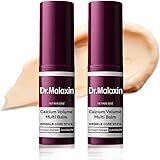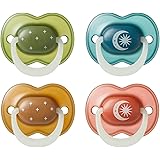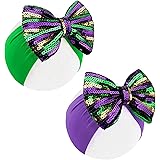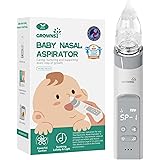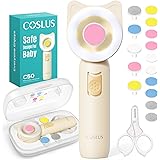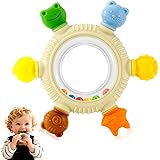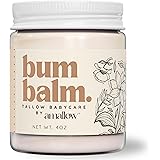A recent study indicated that over 70% of new parents prioritize natural and safe ingredients when selecting products for their infants, reflecting a growing awareness of what goes onto delicate baby skin. This significant concern underscores the importance of choosing products that not only cleanse but also protect, aligning perfectly with the brief yet powerful message presented in the video above. The focus on natural ingredients that are simultaneously tough on germs for optimal baby health and hygiene speaks directly to this parental imperative, offering peace of mind in an often overwhelming market.
While the video succinctly highlights the benefits of natural products for infant care, it’s crucial to delve deeper into why these choices matter so profoundly for your little one’s well-being. Unlike adult skin, a baby’s skin is considerably thinner and more permeable, making it far more susceptible to irritation and absorption of chemicals. Therefore, selecting items designed with sensitive baby skin in mind isn’t just a preference; it’s a fundamental aspect of comprehensive newborn care that significantly impacts their overall health.
Embracing Natural Ingredients for Sensitive Baby Skin
The call for products with natural ingredients isn’t merely a trend; instead, it represents a well-founded understanding of infant physiology. Imagine if every product you used on your baby contained synthetic fragrances, dyes, or harsh preservatives; over time, these substances could potentially disrupt the skin’s natural barrier. Conversely, natural ingredients, often derived from plants, are generally less likely to trigger allergic reactions or dryness, supporting the skin’s inherent protective functions. This gentle approach is paramount for maintaining healthy, supple skin, laying a strong foundation for your baby’s dermatological future.
Consider, for example, the difference between a harsh soap and a mild, plant-based cleanser designed specifically for infants. The former might strip away essential oils, leaving skin dry and vulnerable; however, the latter works synergistically with the skin, cleansing effectively without compromising its delicate balance. These thoughtful formulations often incorporate emollients like shea butter, almond oil, or calendula extract, which are renowned for their soothing and moisturizing properties. Prioritizing such compositions contributes significantly to effective baby health and hygiene, ensuring comfort and protection from the very start.
Understanding Germ Protection for Babies: A Balanced Approach
The video’s emphasis on products tough on germs but gentle for babies perfectly encapsulates the dual challenge parents face in maintaining infant health and hygiene. Babies are constantly exploring their world, often by touching everything and then putting their hands in their mouths, which naturally exposes them to various microbes. While complete sterilization is neither practical nor beneficial for developing immunity, effective germ protection for babies is essential to prevent common illnesses. The key lies in finding products that can eliminate harmful bacteria and viruses without resorting to strong, potentially irritating chemicals.
However, it is important to differentiate between harmful germs and the beneficial microbes that contribute to a healthy immune system. For instance, over-sanitizing might inadvertently remove good bacteria from surfaces, potentially hindering a baby’s natural immune development. Therefore, the most effective approach to germ protection for babies involves regular, thorough cleaning with gentle, naturally-derived disinfectants or cleansers, especially on frequently touched items. This strategic balance ensures a clean environment without overdoing it, fostering a healthy ecosystem for your “little angel” to thrive in.
Crafting an Optimal Baby Hygiene Routine
Establishing a consistent and gentle baby health and hygiene routine is one of the most proactive steps parents can take to safeguard their infant’s well-being. This routine extends beyond just bath time, encompassing daily practices that protect against germs and nurture sensitive skin. While a daily bath might not always be necessary, particularly for newborns, regular cleaning of key areas is non-negotiable. Furthermore, adopting a systematic approach helps integrate these vital habits seamlessly into your family’s daily life.
A typical daily hygiene routine should include careful cleaning of the diaper area with soft wipes or a damp cloth after every change, preventing irritation and diaper rash. Additionally, regular handwashing for both parents and baby (as they get older) is critical, particularly before feeding and after diaper changes. Unlike adult products, baby-specific hand soaps with natural ingredients are designed to clean effectively while being incredibly mild on delicate skin. Moreover, don’t forget the importance of cleaning pacifiers and toys regularly, as these items often end up in your baby’s mouth and can be significant carriers of germs.
Key Considerations for Selecting Safe Baby Products
Choosing the right products for your baby health and hygiene regimen requires careful consideration beyond just their “natural” label. While natural ingredients are highly desirable, parents should also scrutinize product labels for certifications and transparency regarding sourcing. Imagine finding a product labeled “natural” but then discovering it contains hidden allergens or unlisted synthetic components; this scenario highlights the importance of thorough investigation. Consequently, reputable brands often provide detailed ingredient lists and may even carry seals from independent organizations that verify product safety and ingredient purity.
Another crucial factor is the product’s pH balance, as a baby’s skin barrier is best maintained with products that are slightly acidic, matching their skin’s natural pH. Conversely, products that are too alkaline can disrupt this barrier, leading to dryness and irritation. Look for descriptions like “pH-balanced” or “dermatologist-tested for sensitive skin” to ensure compatibility. Furthermore, opt for unscented or lightly scented products using natural essential oils, avoiding strong artificial fragrances that can often be irritants. Ultimately, making informed choices about the products you use for your little one is a cornerstone of effective baby health and hygiene.
Heavenly Answers: Your Natural Baby Health & Hygiene Q&A
Why should I choose natural products for my baby?
Baby skin is much thinner and more sensitive than adult skin, making it more susceptible to irritation and chemical absorption. Natural products are generally gentler and help protect their delicate skin.
What kind of natural ingredients are good for baby products?
Look for plant-derived ingredients like shea butter, almond oil, or calendula extract. These are known for their soothing and moisturizing qualities, supporting the skin’s natural barrier.
How can I protect my baby from germs effectively?
Use gentle, naturally-derived cleansers for regular, thorough cleaning of frequently touched items and areas. This helps eliminate harmful germs without removing beneficial microbes important for immunity.
What are important things to consider when choosing baby products?
Beyond natural labels, check for product pH balance, certifications, and detailed ingredient lists. Also, opt for unscented or lightly scented products with natural essential oils to avoid irritants.



